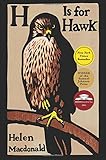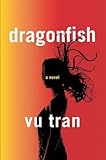 Did I read António Lobo Antunes’s The Land at the End of the World this year? Probably. I know I read it several times from 2011 to 2013 when I used it as my touchstone for writing my own novel. If most literature is weak coffee, and really good literature is excellent coffee, this book is a series of espresso shots. I could only read it a few pages at a time. The anger and sadness are intense and the imagery is wholly original and hypnotic in this account of a young medic in Portugal’s brutal colonial war in Angola. I’m going to keep talking about this book until someone tells me they’ve read it.
Did I read António Lobo Antunes’s The Land at the End of the World this year? Probably. I know I read it several times from 2011 to 2013 when I used it as my touchstone for writing my own novel. If most literature is weak coffee, and really good literature is excellent coffee, this book is a series of espresso shots. I could only read it a few pages at a time. The anger and sadness are intense and the imagery is wholly original and hypnotic in this account of a young medic in Portugal’s brutal colonial war in Angola. I’m going to keep talking about this book until someone tells me they’ve read it.

 I definitely read Helen Macdonald’s H Is for Hawk. I never would have read it except that my publisher put out the American edition, which became a bestseller. Who wants to read about a woman who turns to training a fierce goshawk in order to deal with her father’s death? Not me. But Macdonald takes this premise and turns it into a rich exploration of grief, nature, and the wild.
I definitely read Helen Macdonald’s H Is for Hawk. I never would have read it except that my publisher put out the American edition, which became a bestseller. Who wants to read about a woman who turns to training a fierce goshawk in order to deal with her father’s death? Not me. But Macdonald takes this premise and turns it into a rich exploration of grief, nature, and the wild.
Recently I re-read Claudia Rankine’s Citizen in order to teach it to my graduate seminar. Even the second time around, I felt myself pinned down by the power of Rankine’s language, politics, and vision. As for my graduate students, they loved it. Half the class were doctoral students working on literary critical projects. The other half were poets or fiction writers working on creative dissertations. Rankine’s book spoke to both the critical and creative worlds equally well.
 Finally, I was delighted and thrilled to find Vu Tran’s Dragonfish, which I consumed in a couple of evenings. It’s a literary detective story about a cop in search of his ex-wife at the behest of the ex-wife’s new gangster boyfriend. The ex-wife is also a Vietnamese refugee with a traumatic history. Tran’s book merges thriller and the so-called ethnic story into one powerful and highly readable book. Plus we were both reviewed in The New York Times in the same week, which proves that two so-called ethnic authors of the same background can exist in the same space and not overwhelm the literary establishment.
Finally, I was delighted and thrilled to find Vu Tran’s Dragonfish, which I consumed in a couple of evenings. It’s a literary detective story about a cop in search of his ex-wife at the behest of the ex-wife’s new gangster boyfriend. The ex-wife is also a Vietnamese refugee with a traumatic history. Tran’s book merges thriller and the so-called ethnic story into one powerful and highly readable book. Plus we were both reviewed in The New York Times in the same week, which proves that two so-called ethnic authors of the same background can exist in the same space and not overwhelm the literary establishment.
More from A Year in Reading 2015
Don’t miss: A Year in Reading 2014, 2013, 2012, 2011, 2010, 2009, 2008, 2007, 2006, 2005
The good stuff: The Millions’ Notable articles
The motherlode: The Millions’ Books and Reviews
Like what you see? Learn about 5 insanely easy ways to Support The Millions, and follow The Millions on Twitter, Facebook, Tumblr.









